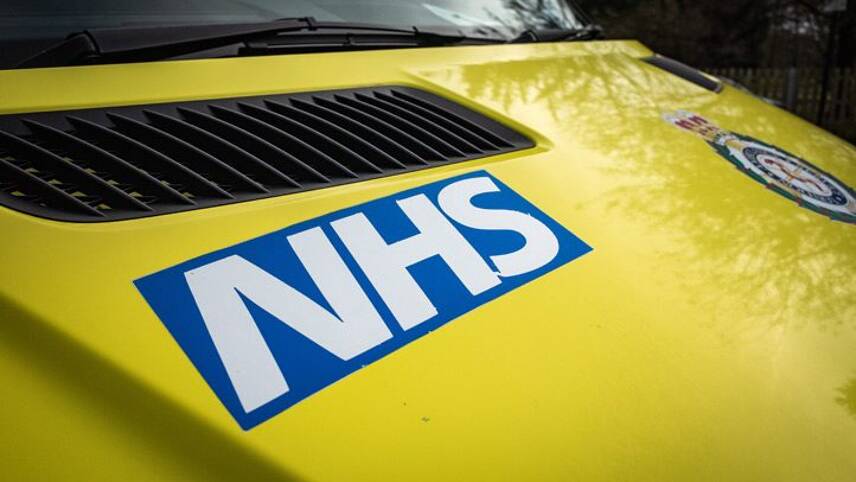Register for free and continue reading
Join our growing army of changemakers and get unlimited access to our premium content

National Health Service in England (NHS England) will target net-zero emissions by 2040, with an intermediate target to reduce emissions by 80% between 2028 and 2032. The NHS will also aim to reduce emissions under its influence, including travel and suppliers, to net-zero by 2045. This also includes an 80% reduction in emissions by 2036 to 2039.
Employing more than 1.2 million people in England, the NHS accounts for 4% of the UK’s carbon footprint. In comparison, the UK’s aviation sector accounts for 6%.
A decarbonisation plan has been introduced that will see 40 new net-zero hospitals created as part of the Government’s Health Infrastructure Plan. A new Net-Zero Carbon Hospital Standard will also be introduced. Engagement will be issued with suppliers to ensure that they comply or exceed the net-zero commitment.
The NHS will aim to reduce emissions from transport by piloting the world’s first zero-emissions ambulance by 2022. A shift to zero-emission vehicles has been given a deadline of 2032.
In addition, the NHS will phase-out coal boilers and implement a £50m LED lighting replacement across the entire NHS estate. According to the organisation, this move will improve patient experience and comfort and save £3bn in energy bills over the next 10 years.
Commenting on the announcement, Jeni Miller, executive director of Global Climate and Health Alliance said: “In May, health professionals from around the world called upon world leaders to ensure a “healthy recovery” from Covid-19 by strengthening health systems and investing in environmental stewardship, lest we emerge from one health crisis only to be faced with the next.
“By setting an ambitious net-zero target and mapping out a path to achieve it, NHS England’s commitment shows how this philosophy can be put into practice. The NHS example should serve as a role model for health systems around the world, as well as a spur to governments to increase their own climate commitments, and ensure a healthier future.”
As referenced, a coalition of global healthcare organisations, backed by more than 40 million healthcare professionals, coordinated a written plea to governments to deliver health-based and climate-focused economic recoveries from the coronavirus pandemic.
Backed by the World Health Organisation (WHO), the Global Climate and Health Alliance and campaign group Every Breath Matters, a letter has been sent to world leaders calling for the creation of a green recovery from the coronavirus pandemic.
Signatories of the letter account for more than half of the global healthcare workforce and calls for investments that protect and prioritise public healthcare and medical jobs, while also calling for green approaches to energy, transport and agriculture. It is believed that greener approaches will help phase-out polluting fossil fuels and improve air quality and public health as a result.
NHS progress
More than 11% of the NHS’s estate has been switched to renewable electricity, under an energy deal signed by its Property Services arm earlier this year.
Following on from the renewables announcement, Cornwall and Isles of Scilly’s sustainability and transformation partnership (STP), which includes all key NHS provisions across the region, set a 2030 net-zero target back in March.
Under the new commitment, all of these organisations will work together to create a system-wide environment plan, headlined by a target to deliver net-zero operational carbon emissions by the end of the decade.
However, MPs on the Environmental Audit Committee (EAC) have warned that the Government must better support the NHS to go fossil-fuel-free and to adapt to the impacts of global warming and nature loss on public health.
MPs note that the NHS failed to meet the Climate Change Act’s original target of a 34% reduction in emissions between 1990 and 2020, and now fear that it will now miss the 2030 51% target and 2050 net-zero target without targeted policy interventions.
MPs on the committee are particularly concerned about the fact that there are no “firm commitments” to phase out coal and oil use by the NHS, and would like deadlines for these fossil fuels set at 2023-4 and 2028-9 respectively.
The NHS Long Term Plan’s requirements for fleet decarbonisation are also under fire from the EAC. While the plan details a commitment for two-thirds of NHS vehicles to be low-emission by 2028, the EAC heard evidence that a 100% target, deadlined at 2035 at the latest, is necessary.
Matt Mace


Please login or Register to leave a comment.